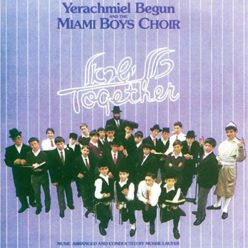Everyone relates to a powerful answering harmony.
Can you think of a song that has amazing vocal arrangements?
A
ll are beautiful, but I personally enjoy counter-harmonies. They enhance the song by adding texture and are often so memorable. When I was a kid, there was Yerachmiel Begun’s well-known Miami Boys Choir song “Meheira.” Anyone who sings that song will inevitably add Yerachmiel’s famous harmony for the word “meichupasam.” Yerachmiel had a gift for creating that catchy kind of “answering” harmony, and it really stuck with the song. Of course, the pioneer of “answering” harmonies in Jewish music was Dedi. Go back and sing “Kulanu Nashir Beyachad,” and anyone listening will join in “Ooh, ooh, ooh.” I was inspired by that kind of harmony when I wrote the songs and arrangements for some of Mendy Wald’s songs on his L’chaim album. You can hear the sound echoing in “Smile Again,” in “Keshem She’anachnu,” and “Amar Rabi Akiva.” More recently, Beri Weber’s niggun “Kerestir” is also a great example. Besides adding great texture to the song, counter harmonies are most memorable for listeners. Non-musical people might not even “get” those harmonies that are more discreetly blended or embedded into the song, but everyone relates to a powerful answering harmony.
—Yitzy Bald, composer and choirmaster
(Originally featured in Mishpacha, Issue 795)





